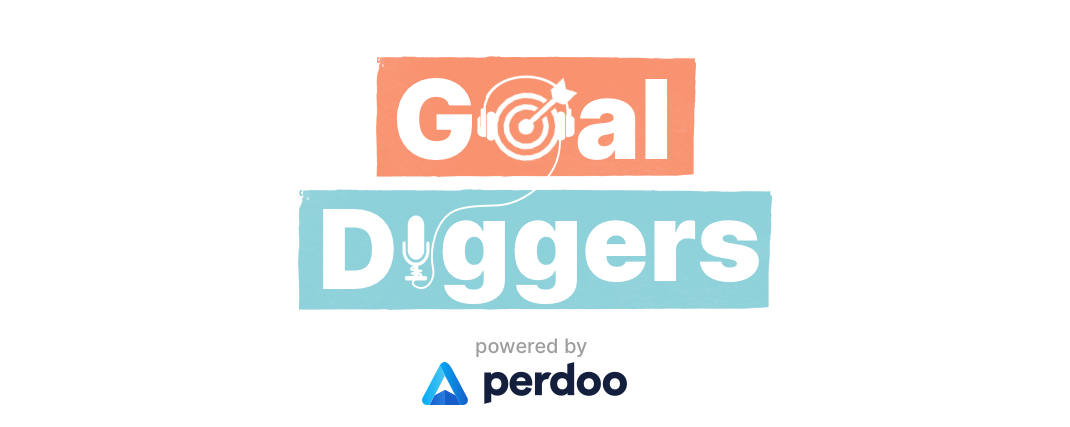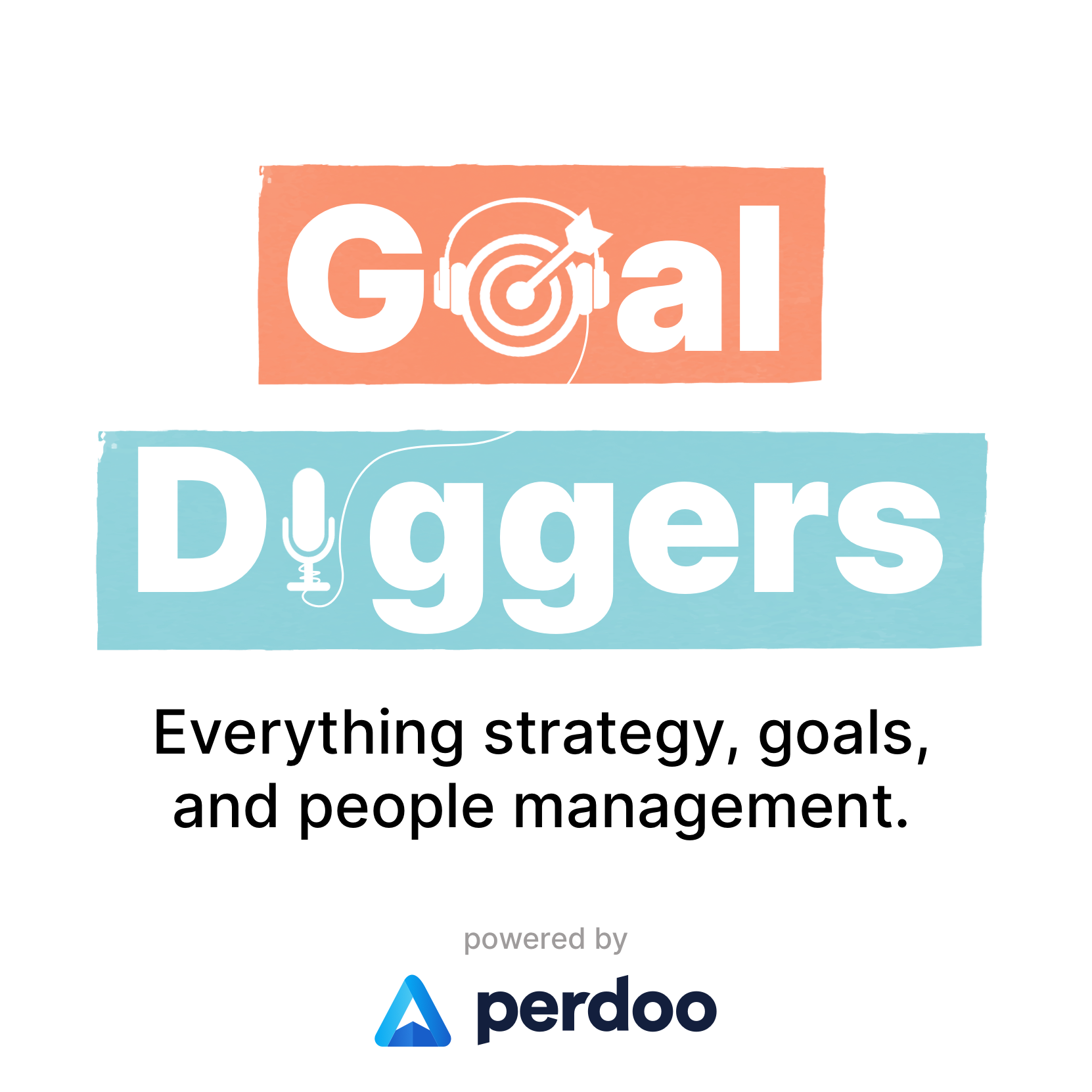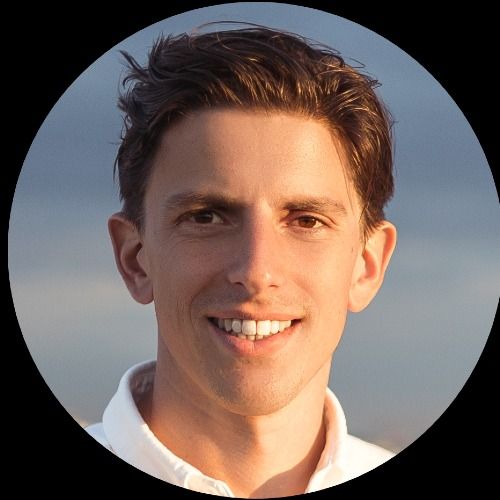Episode 13
Using OKR in public sector organizations with Wilma van Leeuwen (Gemeente Amsterdam)
Did you know that government organizations work with OKR as well? Truth be told, OKR is a tool that can benefit any organization — regardless of industry, size, or maturity — and that includes public sector organizations as well.
The Municipality of Amsterdam (Gemeente Amsterdam) has been working with OKR over the last 2 years and has witnessed a manifold of benefits and a shift in how they approach work. Curious to learn more about their experience with OKR so far?
We spoke to Wilma van Leeuwen, Program Manager Organizational Development at the Municipality of Amsterdam, to get a window into what it's been like, as a public sector organization, to be working with OKR. We'll discuss:
- What made Gemeente Amsterdam implement OKR
- Their rollout and expansion process
- The challenges faced
- The benefits experienced
- Advice to public sectors organizations looking to implement OKR
-
If you're new to OKR or are just getting started, download The ultimate guide to OKR. We'll walk you through everything you need to know to get started with Objectives & Key Results.
And, if you're looking to master the art of setting great OKRs, head over to our newly published (revised edition) eBook on How to write great OKRs.
Start tracking your OKRs (& KPIs) for FREE! Create your own Perdoo account here.
Transcript
Hi everyone and welcome to another episode of Goal Diggers — the podcast
HJ:for OKRs, KPIs, strategy, and growth.
HJ:I'm Henrik, founder, and CEO of Perdoo, the tool for strategy and growth
HJ:management for fast-growing organizations.
HJ:I'll be the host of today's episode.
HJ:And with me today is Wilma van Leeuwen.
HJ:Wilma, please tell us a bit about yourself.
Wilma:Yeah, my background is in business administration in tech organizations.
Wilma:And I started my working career at the fire department in the city
Wilma:of Rotterdam in the Netherlands.
Wilma:And there I was responsible for all IT systems, the maintenance, but
Wilma:also the development of systems, including the control room we had.
Wilma:And after several years for working for the fire brigade, I started working in
Wilma:a municipality in the Netherlands where we had a focus on change management.
Wilma:And since 2009, I've worked as a freelance manager, mostly working
Wilma:on assignments in organizational development in municipalities.
Wilma:And it's there that I learned the importance of really setting
Wilma:goals, reaching goals in public organizations, and it can be
Wilma:really hard sometimes to do that.
HJ:And when you're talking about goals that then also
HJ:includes the OKR methodology?
Wilma:Yeah.
Wilma:Well, I only started about two years ago, discovering the OKR method.
HJ:And before working with OKRs were goals already an important part of how the
HJ:municipality of Amsterdam was being run?
Wilma:Yes, it was.
Wilma:But as it was organized very decentralized, there were many
Wilma:departments that had their own goals and those were not always
Wilma:really compatible with each other.
Wilma:And in 2015, we started centralizing the IT departments.
Wilma:And, after that, we were separated from our business partners as we call it.
Wilma:And they had their own goals, which was difficult to find alignment.
HJ:And how were you introduced to the OKR framework and what
HJ:made the Gemeente Amsterdam, the municipality of Amsterdam, adopt OKR?.
Wilma:Well we noticed that we were not able to achieve any results
Wilma:in our area of working, which is a public space of Amsterdam.
Wilma:And my manager had been searching for a method or for a way to
Wilma:discover how to reach these goals.
Wilma:Like for instance, using strategic planning, information systems or,
Wilma:well, all those kinds of things.
Wilma:But they didn't work because our businesses were not interested.
Wilma:They were interested in short-term results and they thought we just should deliver.
Wilma:So one day he had read the book Measure What Matters and he discussed
Wilma:it with me and he thought, well, maybe it's a good idea to try this.
Wilma:And, well, it was just before Christmas.
Wilma:And so we did, and we started in January.
HJ:And how has it been going so far?
Wilma:Well..
HJ:You started in January of what year?
HJ:Of
HJ:... Wilma: 2019
HJ:2019.
HJ:So that's already more than two years ago.
Wilma:Yeah.
Wilma:Well, it was December 2019.
Wilma:So you could say January 2020.
Wilma:So two years now.
Wilma:We started out really small or just working with two teams
Wilma:who started working on OKRs.
Wilma:After the first quarter we tried to scale up to 10 of our teams, which
Wilma:is a department about 250 people.
Wilma:And after the first year there was also a second department — a new
Wilma:department that started working on OKR.
Wilma:It's the data department.
Wilma:So we were about 500 people working on the OKR method.
Wilma:And the first year was really hard to get people to understand what are goals
Wilma:and what are results, because we are very process oriented in the municipality.
Wilma:And, the second year, went a little bit better because we started introducing
Wilma:well, working together with our business partners to define goals and
Wilma:results, which was working a lot better.
Wilma:I think.
Wilma:And for the second department, it was much easier to find their goals
Wilma:because they were a new organization and they had only changed to deal with.
Wilma:So they had goals to change and to really establish their department in a good way.
Wilma:And now we're going to scale up to about 1200 people in all of
Wilma:the IT departments of Amsterdam.
HJ:And, and was that a conscious decision to start with a few teams and
HJ:then going up to the department before including other parts of the organization?
HJ:Because there are a lot of organizations out there that really
HJ:want to roll this out very quickly.
HJ:So they may start with the leadership team, 20 to 25 people,
HJ:and then very quickly want to scale this up to a thousand people.
HJ:But it sounds as if you've taken a different approach and
HJ:implemented this more carefully.
HJ:Was that a conscious decision?
Wilma:Yeah, more or less because we had to organize the buy-in
Wilma:of higher management in our businesses, in a different way.
Wilma:And that's still an ongoing process because they are not very pleased
Wilma:all the time about how we deliver.
Wilma:So they need to understand that we have to work closer together to achieve goals.
Wilma:And as you said, it's a big organization and this is only the department of
Wilma:the public space, which is maybe about well, five to 8,000 people.
Wilma:And in total there's 19,000 people working in Amsterdam.
HJ:Okay.
HJ:And another thing that you mentioned that I found interesting is that your
HJ:department is, or at least one or a few departments are very process oriented.
HJ:And it seemed as if they were struggling a bit more with adopting
HJ:OKR successfully, than the other department that you mentioned,
HJ:which was much more change focused.
HJ:What made it more difficult for the process oriented department to adopt OKR?
Wilma:They don't really know which goals they are responsible for.
Wilma:They think the goals, that we reach for the city of Amsterdam are not their goals.
Wilma:They're of course, here to support these goals and they don't see the
Wilma:relation to their accomplishments or how they well contribute to these goals.
Wilma:And so they're very used to do everything by the process we had..
HJ:Yeah.
Wilma:So it's a different approach.
Wilma:They are used to thinking in what tasks should I do to achieve
Wilma:this and not in a way to..
Wilma:What do I really want to achieve for Amsterdam.
HJ:Yeah.
HJ:So completing the task would have been like the measure of success, instead
HJ:of thinking beyond that and thinking, okay, what am I actually trying to
HJ:accomplish by completing this task?
Wilma:I have finished making a plan.
Wilma:So I did my job.
HJ:Yeah.
HJ:Yeah, I get it.
HJ:Okay.
HJ:Okay.
HJ:But that's then something that...
HJ:I understand that you're struggling with it, but that's then also the major
HJ:benefit that the OKR framework would have brought to this department, right?
HJ:I assume..
Wilma:It did because we started out with many issues in our environment and
Wilma:we had to focus on solving these issues.
Wilma:Like all our applications should be up to date, which they were not.
Wilma:And now we are much better in really planning and executing this because
Wilma:everyone wants to be in charge of that.
Wilma:So that helps a lot.
Wilma:And sometimes it's still difficult because we, in the end, we want to
Wilma:achieve goals that matter to everyone that lives or works in Amsterdam.
Wilma:And that's a much bigger approach and the goals we want to achieve there,
Wilma:well that's even more difficult to establish the measurements
Wilma:in the Key Results for that.
Wilma:But we're trying, and Amsterdam's planning to do that for all of
Wilma:their big issues in public space.
HJ:Gotcha.
HJ:Okay.
HJ:And other than the things that we've just spoken about, are there other ways
HJ:that you see the Gemeente Amsterdam has really benefited from implementing OKR?
HJ:Maybe what could also be interesting..
HJ:Now that not more departments and more people are involved in OKR, have you
HJ:seen that these benefits have changed?
HJ:Like, are you now getting..
HJ:Is everyone now getting more benefit of working with OKRs now that many more
HJ:departments and people are included?
Wilma:Yes, but there's still not enough departments working in such a way.
Wilma:So we have still a lot of dependencies from other parts of the organization
Wilma:that are not working in this way.
Wilma:But I hope to see the change next year, because in the first
Wilma:quarter we start with the whole IT department working in this way.
Wilma:So that might change.
Wilma:But it helps in the transparency of what do you want to achieve and
Wilma:how far have you gotten so far?
Wilma:The CIO of Amsterdam is really interested in this.
Wilma:And, we're using this in the data organization, which is new.
Wilma:And it helps to give an insight in how they achieve
Wilma:professionalizing their organization.
Wilma:And that really helps already.
HJ:Okay.
HJ:You said the CIO is involved and interested.
HJ:Just out of curiosity, are political parties to a certain extent aware
HJ:of this initiative as well, or?
Wilma:No, not yet but I'm also discussing this with a group that is
Wilma:in charge of finding the new, well, what they call political program for
Wilma:the next years and they are preparing that in front of the elections.
Wilma:And they're really interested in using this on a larger scale
Wilma:for the upper, well, the central management of the whole city.
Wilma:Uh, so not political but what we call Amtelek (?)That's the
Wilma:organizational management.
Wilma:It's connected to each other.
Wilma:So, yes, I think in the near future, on a high level we will also start
Wilma:working in this way with OKR.
Wilma:Cause we have several issues in Amsterdam like climate or like housing, which
Wilma:are huge and will not be steered by just one department, but many more.
Wilma:And you have to have really big goals together to be able to give this a
Wilma:direction and to solve these issues in a way, because they're too complicated.
HJ:Understood.
HJ:Yeah.
HJ:Yeah.
HJ:For our listeners that are also working in the public sector, and
HJ:that are maybe also looking to implement OKRs: did you encounter
HJ:any challenges or barriers during the implementation process that you think
HJ:might be unique to the public sector?
Wilma:I'm not really sure.
Wilma:I think it's a little bit more difficult to find the goals that give
Wilma:you the direction you want to go.
Wilma:That's what I said earlier, because, everyone is well more
Wilma:accustomed to thinking in processes.
Wilma:They have trouble visualizing and formulating their goals.
Wilma:And maybe you can also have an advantage being in a public organization because
Wilma:we need to be transparent to the public.
Wilma:And that's one of the issues that is really normal to a public organization.
Wilma:So maybe that's an advantage.
Wilma:And measuring goals in the public organizations that may be a little
Wilma:bit more difficult, but then again, we're starting to find
Wilma:the measurements more and more..
HJ:Okay.
HJ:So, but, so that means it's or that could mean that it's kinda
HJ:like a mind shift that you have to think in terms of outcomes and
HJ:results you're trying to accomplish.
HJ:And that's something that's difficult at the start, but that
HJ:you'll get better at overtime.
Wilma:Yeah.
Wilma:Yeah, that's right.
Wilma:But I also see different barriers in terms of, we have like a
Wilma:fixed planning and control cycle.
Wilma:We're obliged to use that.
Wilma:Like it's the law.
Wilma:And it helps if you can adjust the cadence you're using in OKRs to these
Wilma:different cadences that are already there.
Wilma:That helps.
Wilma:And there's another thing that we also try to be more agile.
Wilma:So the agile way of working, we try to introduce alongside using
Wilma:OKRs so we can adjust easier to what is needed in the city.
HJ:Okay.
Wilma:That helps.
Wilma:As an argument it helps convincing people to use OKRs.
HJ:Yeah.
HJ:Would you recommend other public sector organizations to use OKR?
HJ:What would be your advice to other people working in the public sector?
Wilma:I would definitely recommend using OKRs and my advice would be
Wilma:to prepare using OKRs well before you start, but not too long.
Wilma:Just start and experience how difficult it is, but also how helpful it can be and
Wilma:use these rituals and cadences to change the mindset and to help changing the
Wilma:mindset to how you're working together.
Wilma:And, give us some kind of structure in how to change that.
Wilma:So if you have a, well, like quarterly cadence and you have every
Wilma:quarter the same events, it helps people to work towards these events
Wilma:and adjust their behavior to it.
Wilma:So that helps.
Wilma:And it also helps to have really good guidance in forms of a well agile coaches,
Wilma:OKR coaches, and, maybe a playbook and different kinds of masterclasses we give.
Wilma:All those things help to,support working with OKR.
HJ:Cool.
HJ:Thank you so much for joining us today.
HJ:We'll mind for sharing your experiences and your learnings with our audiences.
HJ:I honestly think that the OKR framework and the thinking that
HJ:comes with it could indeed be really, really interesting for organizations
HJ:working in the public sector.
HJ:So I think it was very valuable for them that you share your story with us today.
HJ:So thank you very much and, hoping to welcome you another
HJ:time soon on the podcast.
HJ:Thank you for listening.
HJ:If you'd like to learn more about strategy, goals, and growth, head over to
HJ:our resources have at purdue.com/resources and subscribe to our newsletter to stay


